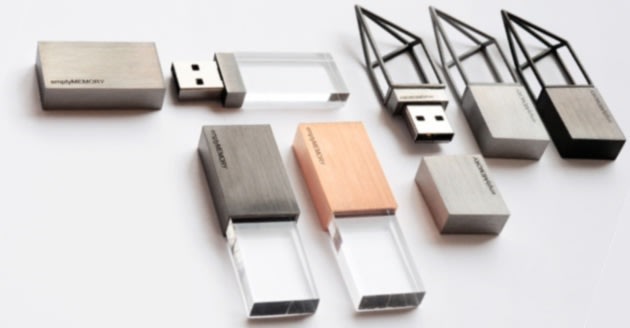BRUSSELS (Reuters) ? European Union governments agreed on Monday to an immediate ban on all new contracts to import, buy or transport Iranian crude oil, a move to put pressure on Tehran's disputed nuclear program by shutting off its main source of foreign income.
However, to protect Europe's economy as it battles to overcome a debt crisis, the governments agreed to phase in the embargo, giving countries with existing contracts with Iran until July 1, 2012 to end those deals.
At a meeting of foreign ministers in Brussels, EU governments also agreed to freeze the assets of Iran's central bank and to ban all trade in diamonds, gold and other precious metals with the bank and other public bodies.
Western powers hope the far stricter sanctions net, which brings the EU more closely into line with U.S. policy, will force Iran to scale back or halt its nuclear work, which Europe and the United States believe is aimed at developing weapons. Iran says it is enriching uranium solely for peaceful purposes.
EU foreign policy chief Catherine Ashton said she wanted financial sanctions to persuade Tehran to return to negotiations with the West , which she represents in talks with Iran.
"I want the pressure of these sanctions to result in negotiations," she told reporters before the ministers met.
"I want to see Iran come back to the table and either pick up all the ideas that we left on the table ... last year ... or to come forward with its own ideas," she said.
Tehran says its nuclear program is necessary to meet its rising energy needs, but the United Nations' International Atomic Energy Agency said last year it had evidence that suggested Iran had worked on designing a nuclear weapon.
In a statement, EU ministers said a recent move by Iran to start enriching uranium at its underground Fordow nuclear plant was a "flagrant violation" of U.N. resolutions.
"(It) further aggravates concerns about possible military dimensions to Iran's nuclear program," the ministers said.
EU sanctions follow fresh financial measures signed into law by U.S. President Barack Obama on New Year's Eve mainly targeting the oil sector, which accounts for some 90 percent of Iranian exports to the EU. The European Union, a bloc of more than half a billion people, is Iran's largest oil customer after China.
MEASURED STEPS
Economic considerations weighed heavily on EU preparations for the embargo in recent weeks, because of the heavy dependence of some EU states on Iranian crude. As a result, concessions pushed for by states such Greece will likely blunt the impact of EU sanctions for now, experts said.
Greece, which is at the heart of the debt crisis and relies on international aid to stay afloat, sources about a quarter of its oil imports from Iran because of favorable financing terms, and must now seek alternative sources.
It had pushed strongly for a grace period on existing deals and had originally argued it needed a year to prepare.
To reassure the Greek government, its EU peers agreed to return to the issue of oil sanctions before May to assess whether the measures are effective and whether EU states are succeeding in finding sufficient alternative resources.
The review could potentially affect the date when the full ban takes effect, diplomats said.
"The financial situation of Greece at the moment is not the brightest one, and rightly they are asking us to help them find a solution," a senior EU official told reporters on Friday.
Saudi Arabia, Kuwait and other oil-rich Gulf states are expected to raise their output of crude oil to offset the loss of access to Iranian exports and prevent market instability.
With a significant part of EU purchases of Iranian oil covered by long-term contracts, the grace period will be an important factor in the effectiveness of the EU measures.
Emanuele Ottolenghi of the Foundation for the Defense of Democracies in Washington said the oil embargo was possibly the last card Western governments could play to avoid military confrontation with Iran.
But, he said, Europe's gradual approach and the possibility of waivers in U.S. measures weakened their impact.
"Regrettably, Europe's delay and America's loopholes mean Iran gets a reprieve at a time when, with Iran's nuclear program accelerating, it would have been preferable to see an embargo implemented sooner," he said.
European ministers also agreed to outlaw the export of key equipment and technology for the oil sector to Iran, and new investment in Iranian petrochemical firms.
Measures against the central bank will go into effect with the provision that allowed trade can continue, allowing for limited impact on the Iranian population.
The unprecedented effort to take Iran's 2.6 million barrels of oil per day of exports off international markets has kept global prices high, pushed down Iran's rial currency and caused a surge in the cost of basic goods for Iranians.
(Additional reporting by Adrian Croft in London and Sebastian Moffett in Brussels; Editing by Luke Baker and Rex Merrifield)
Source: http://us.rd.yahoo.com/dailynews/rss/energy/*http%3A//news.yahoo.com/s/nm/20120123/wl_nm/us_iran_eu_deal
graham spanier penn state board of trustees brett ratner jerry sandusky toyota recall order of operations carrie underwood






 Pink_Paper
Pink_Paper 
